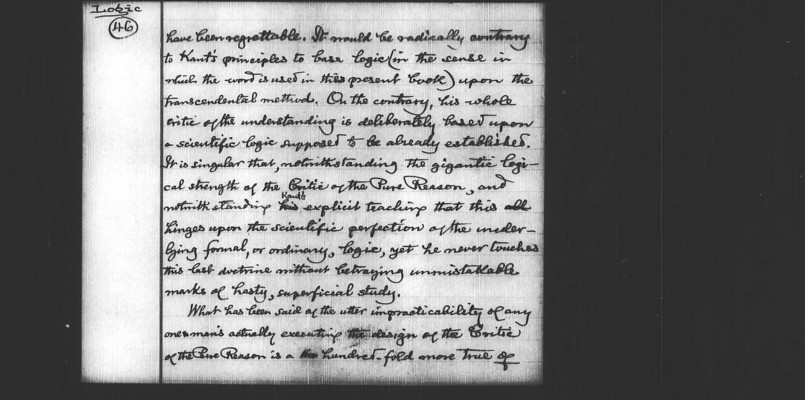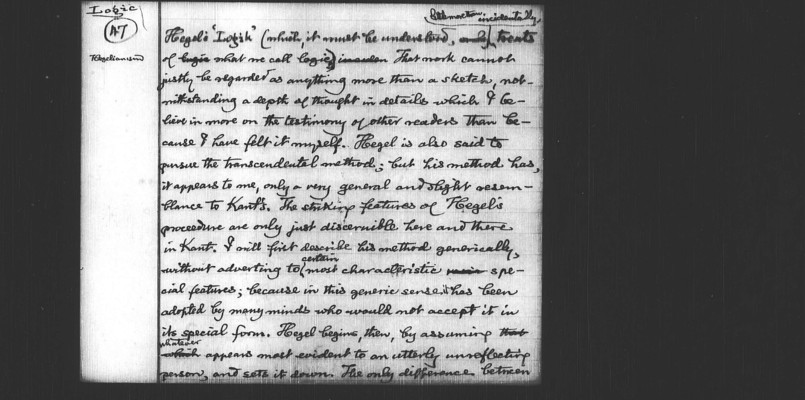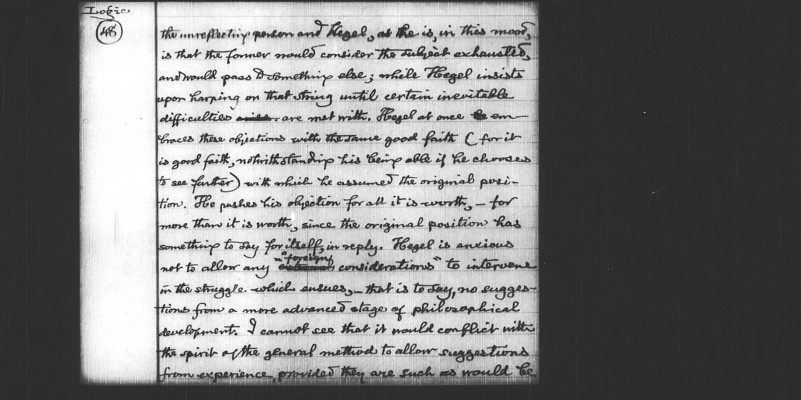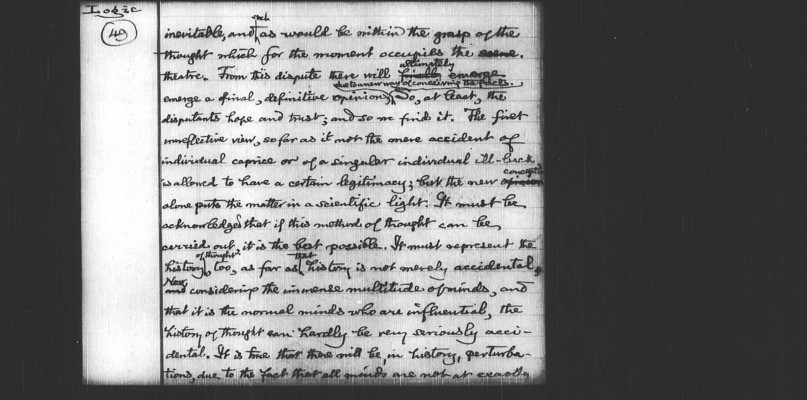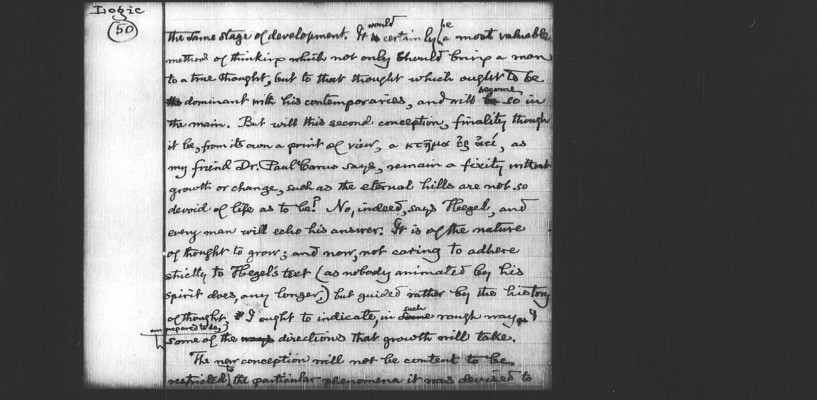Pages
46
Logic 46
have been regrettable. It would be radically contrary to Kant's principles to base logic (in the sense in which the word is used in this present book) upon the transcendental methods. On the contrary his whole critic of the understanding is deliberately based upon a scientific logic supposed to be already established. It is singular that notwithstanding the gigantic logical strengthof the Critic of Pure Reasonand notwithstanding kant's explicit teaching that this hinges upon the scientific perfection of the underlying formal or ordinary logic yet he never touches this last doctrine without betraying unmistakable marks of hasty superficial study.
What has been said of the utter impracticability if any one man's actually executing the design of the Critic of the {ure Reason is a hundred-fold more true of
47
Logic 47 Hegelianism
Hegal's 'Logik' (which it must be understood little more than incidentally treats of what we call logic). That work cannot justly be regarded as anything more than a sketh not withstanding a depth of thought in details which I believe in more on the testimony of other readers than because I have felt it myself. Hegel is also said to pursue the transcendental method but his method has it appears to me only a very general and slight resenblance to Kant's. The striking features of Hegel's procedure are only just decernible here and there in Kant. I will first describe his method generically without advertising to certain most characteristic special features becaise in this generic sense it has been adopted by many minds who would not accept it in its special form. Hegel begins the by assuming whatever appears most evident to an utterly unreflecting person and sets it down. The only difference between
48
Logic 48
the unreflecting person and Hegel as he is in this mood is that the former would consider the subject exhausted and would pass to something else while Hegel insists upon harping on that string until certain inevitable difficulties are met with. Hegel at once embraces these obligations with the same good faith (for it is good faith nothwithstanding his being able if he chooses to see further) with which he assumed the original position. He pushes his objection for all its worth - for more than it is worth since the original position has something to sat for itself in reply. Hegel is anxious not to allow any "foreign consideration" to intervene in the struggle which ensues that is to say no suggestions from a more advanced stage of philosophical development. I cannot see that it would conflict with the spirit of the general method to allow suggestions from experience provided they are such as would be
49
Logic 49
inevitable and such as would be within the grasp of the though which for the mement occupies the same theatre. From this dispute there will ultimately emerge a final definite opinion due to a new way of concieving the facts. So at least the disputants hope and trust and so we find it. The first unreflective view so far as it not the mere accident of individual caprice or of a singular individual ill-luck is allowed to have a certain legitimacy but the new [con?gation] alone puts the matter in a scientific light. It must be acknowledged that if this method of thought can be carried out it is the best possible. It must represent the history of though too as far as that history is not merely accidental. Next considering the immense multitude of minds and that it is the normal minds who are influential the history of thought can hardly be very seriously accidental. It is true that there will be in history perturbation due to the fact that all minds are not at exactly
50
Logic 50
The same stage of development. It would certainly be a most valuable method of thinking ehich not only should bring a man to a true thought but to that thought which ought to be dominant with his contemporaries and will become so in the main. But will this second conception finality though it be from its own a point of view a [?] [?] [?] as my friend Dr Paul Carrus says remain a fixity without growth or change such as the eternal hill are not so devoid of life as to be? No indeed says Hegel and everyman eill echo his answer. It is of the nature of thought to grow and npw not caring to adhere scrictly to Hegel's test (as nobody animated by his spirit does any longer) but guided rather by the history of thought. I ought to indicate in such roughway I am prepared to do some of the directions that growth will take. The new conception will not be content to be restricted to the particular phenomena it was devised to
